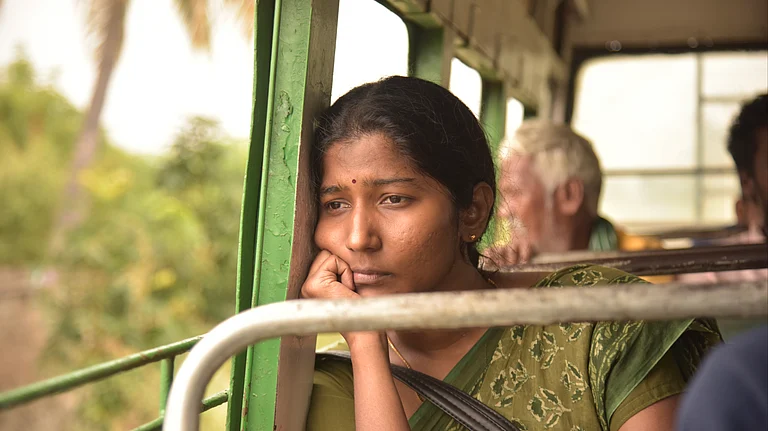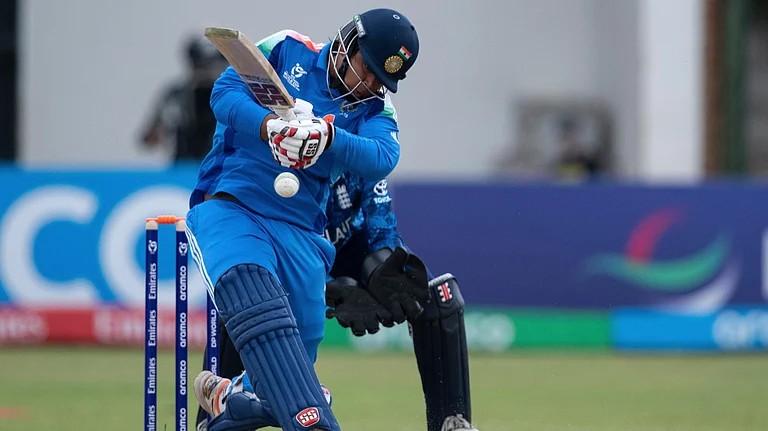Chandramani Hansda, 25, who lives a few meters away from President-elect Droupadi Murmu’s ancestral house at Upabeda village near Rairangpur town in Odisha, wants the new President to ensure “no Adivasi girl remains uneducated.”
A few hundred kilometers away in the neighbouring state of Jharkhand, where Murmu was a Governor, tribal rights leader Salkhan Murmu wants “real Sengel” (emanicipation) for the long exploited tribals of his state.
Tribal aspirations, ranging from better schools to simplification of forest laws in favour of tribals, to recognition of tribal religions and tribal empowerment, have soared with the election of Droupadi Murmu as the first woman tribal President of India.
Hansda, a graduate in political science from a nearby college and a housewife said, “Now, after ‘Didi’ (elder sister) has reached the top of the ladder, I can also expect growth in my life. If Murmu can help, she should ensure that no Adivasi girl remains uneducated".
The mood in the tribal heartland in the east and in central India spread over Odisha, Jharkhand, Chattisgarh and parts of West Bengal and Assam, is upbeat.
While some want `Sengel’ (empowerment) others want Sarna, a traditional tribal religion to be recognised and people whofollow the tribal way of worship enumerated as separately from Hindus and Christians.
Salkhan Murmu, a prominent tribal leader from Jharkhand, who is spearheading 'Adivasi Sengel Abhiyan' (tribal empowerment campaign) said: "We hope, it is time for real 'Sengel' for long-exploited and neglected tribals with one from the community rising to the top constitutional post.”
The Jharkhand leader pointed out that as Governor of Jharkhand, Droupadi Murmu, had shown grit in negating an attempt by a previous BJP government led by Raghubar Das to amend Chotanagpur Tenancy Act and Santhal Paragana Tenancy Act which would have allowed commercial use of tribal land.
"I recall how as Jharkhand Governor, Murmu had forced the Raghubar Das government to recall draconian bills aimed at amending tenancy Acts after consulting 192 tribal representatives," he said.
Bablu Munda, President Kendriya Sarna Samiti, Jharkhand wants to meet the President once she is ensconced in Rashtrapati Bhawan to talk about the Sarna religion.
"We hope that the doors of Rashtrapati Bhawan will be open to tribals from remote rural areas. We will meet her and demand a Sarna Code," he said.
A year-and-a-half back, the Jharkhand assembly passed a resolution asking the central government to recognise Sarna, whose followers worship nature, as a religion and codify it for Census enumeration.
Murmu, who is also a BJP MP added his weight to the demand stating, “We Adivasis are nature worshippers - neither Hindu nor Muslim, neither Sikhs nor Christians." He added that by not recognising 'Sarna Code' the authorities were “forcing tribals to be converted to other religions."
However, the expectations do not remain limited to a school or recognition for a religion, there are demands for an end to conflict with tribals and for changes in laws to better their lot.
"We expect her (Murmu) to issue directions to withdraw the Forest Conservation Rules, 2022 which go against the Forest Rights Act, 2006. The new rules allow states to divert forest land for projects without the consent of forest dwellers which could lead to mass tribal displacement," Alok Shukla from Chhattisgarh Bachao Andolan, an organisation working for the rights of tribals in the state, said.
Yogini Khanolkar, a trustee of Narmada Nav Nirman Abhiyan Trust which works with tribal communities said, "I expect her (the new President) to use her special powers to protect the interests and culture of the tribal communities, bulldozed many times to pave way for mega-infrastructure projects."
She pointed out that the procedure of their inclusion in any new scheme “is very harsh and (often) implemented arbitrarily.”
“It leads to unwarranted conflicts. Murmu could use her position and ensure smooth handling of delicate issues related to the tribals," Khanolkar said.
Others have few expectations. "There are expectations, yes. But we had a Dalit president for five years. Did it help Dalits in a big way? Possibly not,” said tribal rights activist Shubhranshu Choudhary, who is also the founder of CGNet Swara, a citizen journalism initiative in Chhattisgarh's rural areas.
Choudhary pointed out that Governors have special powers in Scheduled Areas, “But no governor has done anything for tribals ever.”
He nevertheless admits that Murmu refused to sign anti-tribal bills into law when governor of Jharkhand. “We really hope she will be able to influence the government's decision making with regard to tribals," the activist said.
Assam’s tea-tribes, or the 'Adivasis' many of whom were relocated here from Bihar and Jharkhand before India’s independence to work as labour in tea estates, are particularly happy and excited that a woman from their community has been elevated to the highest office of the land.
The representatives of various Adivasi organisations have a single point agenda or hope that their long-drawn demand of being granted Scheduled Tribe status will be realised with Murmu likely to play a pivotal role as the constitutional head.
Bir Singh Munda, Secretary of Adivasi National Convention Committee, an umbrella body of all Adivasi organizations in the state said “As the constitutional head, she has the power of ensuring that the long-pending demand of the Adivasis for Scheduled Tribe status be granted.”
(With PTI inputs)


























